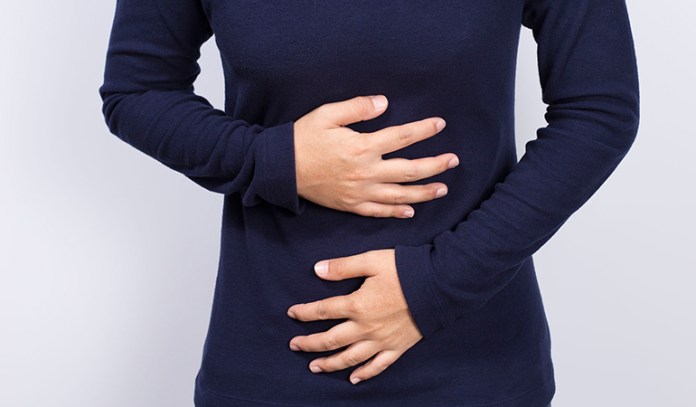You know that saying, “Listen to your gut?” Well, it turns out these foods have a scientific meaning. Your gut is the first to know when something is on your mind. Basically, when you’re upset, so is your stomach.
Digestive problems often affect people suffering from sadness, anxiety, or depression. These issues are known as functional gastrointestinal disorders. They also have a lifetime prevalence of 80 to 90 percent, according to the General Hospital of Psychiatry.1
You can thank something called the gut-brain axis, the connection between your intestinal system and emotional centers. The two communicate through this axis, explaining why one affects the other. Habits, unsurprisingly, can also play a role. If you’re struggling sadness, keep these issues in mind. Your upset brain might turn into an upset stomach.
Effects To The Gut When You Are Sad
1. Over Eating Or Under Eating Causes Constipation

Depression often sparks a change in eating habits. After all, it’s hard to eat healthy when you’re down in the dumps. You might eat more than usual or totally lose your appetite, increasing the chance for low fiber intake.
This can snowball into constipation. Doing number two will feel impossible, topped off with stomach pain and bloating. Visits to the bathroom will rarely happen.2
Beyond habits, there’s a strong link between constipation and depression. About 65 percent of constipated patients have psychological problems. Anxiety, depression, and pain are the most common.3
2. Unhealthy Eating Causes Diarrhea

Sometimes, those eating habits cause diarrhea. This is the opposite of constipation watery, loose stools and a constant need to go to the bathroom. Your bowel might seem like it has a mind of its own. Pain, cramping, and bloating are also common.
Maybe it’s the specific food you’re eating, or maybe it’s the lack of nutrients. Both can mess with the bacterial balance in your gut. If diarrhea persists, the risk for dehydration increases. Symptoms include exhaustion, sunken eyes, and light-headedness. Of course, these can just worsen a depressive episode.4
There’s also the gut-brain axis connection. When you’re stressed out, the nervous system acts up. But since it also controls the colon, your gut is sure to feel it. This can show up as digestive problems, including diarrhea.5
3. Sadness Causes Nausea

Traumatic events can be hard to stomach, literally. If you’re dealing with a tough situation, it’s common to feel nauseous and woozy. The urge to vomit might linger. According to the General Hospital of Psychiatry, anxiety is the strongest risk factor for nausea.6 This is vital to keep in mind, as depression and anxiety often show up together. If you’re constantly feeling nauseous, work on natural ways to relieve it. Eating ginger7 and doing breathing exercises8 are perfect examples.
4. Irritable Bowel Syndrome Is Caused By Sadness

Sadness can make your digestive system act strange. A common issue is irritable bowel syndrome (IBS), a group of symptoms that cause pain and discomfort. It can show up with either diarrhea, constipation, or a mix between the two.9
Stress plays a big part, so it helps to learn how to handle it. Meditation, therapy, and regular exercise are great ideas. There’s even psychodynamic therapy, a type of counseling that focuses on how emotions affect IBS. By reducing stress, it’ll be easier to manage IBS symptoms.10
Reverse Psychology Good Gut For Good Feelings
Remember, the gut-brain axis works in both ways. If you’re struggling with unhappiness, consider fighting it from the inside out. It will be a major step toward feeling better.
Probiotics

A balanced gut is a healthy one. Start with probiotics, or “good” bacteria.They’ll replenish your gut, causing a reduction of cortisol, the stress hormone. Depression and anxiety-related behavior will also decrease.11 Sources include fermented foods like yogurt, kefir, sauerkraut, kombucha, miso, tempeh
Prebiotics

Don’t forget about prebiotics, too. These foods help probiotics thrive. They work by providing substrates that help bacteria ferment and grow! This way, you can get the most out of them.12
Sources include fiber-rich foods like fruits, vegetables, whole grains, and seaweed.13
Everything that you do for the gut will affect emotions. In that same vein, working toward happiness will improve digestive symptoms. Always keep this connection in mind.
References





